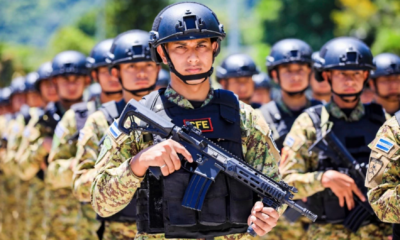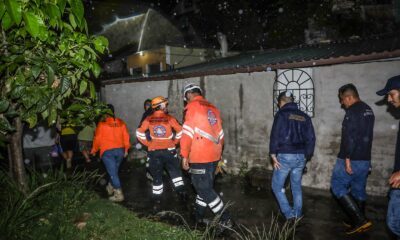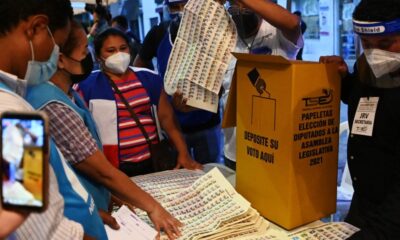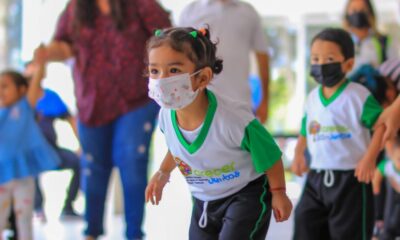Central America
El Salvador’s PNC adds 85 days without murders and April is on track to be the safest in Salvadoran history
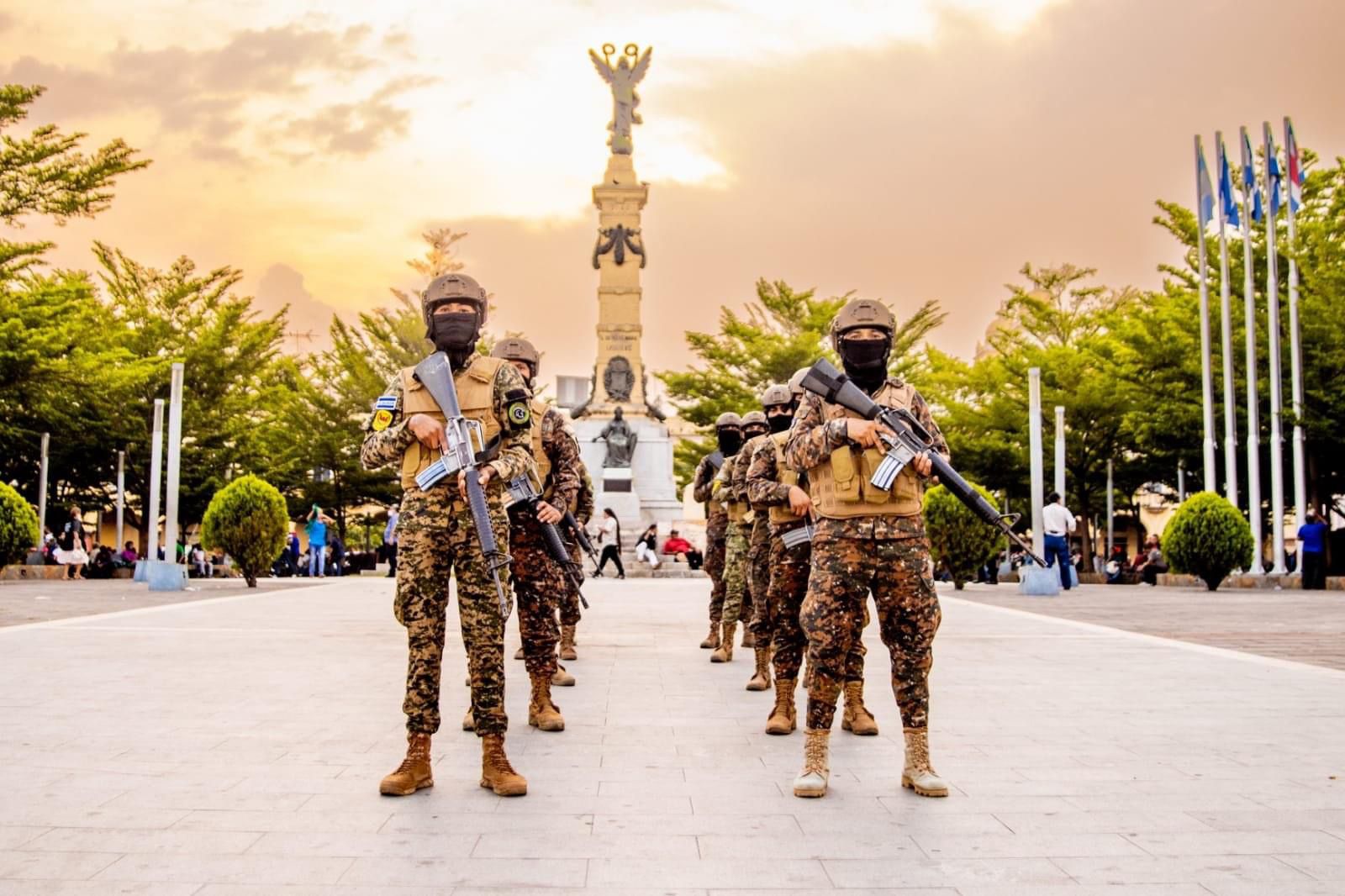
April 29 |
April is one day away from becoming the safest month in the history of El Salvador, since up to Thursday 27th the accumulated number of days without homicides was 22, the same amount with which January closed this year and for which it was catalogued by authorities as the safest.
If this trend continues, and due to the fact that the police records do not include the data from the last three days of this month (Friday, Saturday and Sunday), the conditions would be in place for April to continue adding more days of zero murders.
The data indicate that the cumulative total so far this year between January 1 and April 27 is 85 days without violent deaths. The figures indicate that March closed with 20 days without murders and February with 21.
So far in the administration of President Nayib Bukele, the total number of days without murders is 355, according to police information. Public security authorities have maintained that the reduction in homicides is due to the fight against gangs that has characterized this administration.
The climate of security currently enjoyed by the population has meant that other Latin American countries such as Peru, Honduras, Guatemala and Ecuador are interested in replicating the security model implemented by President Bukele to combat gangs and restore peace of mind to the population.
In 2015 during the FMLN government, under the administration of fugitive Salvador Sánchez Cerén, the homicide rate in El Salvador was 106 per 100,000 inhabitants, these conditions placed the country on the shameful list of the most dangerous nations in the world.
Central America
Guatemala Police Arrest Prison Guard Caught in the Act of Extortion
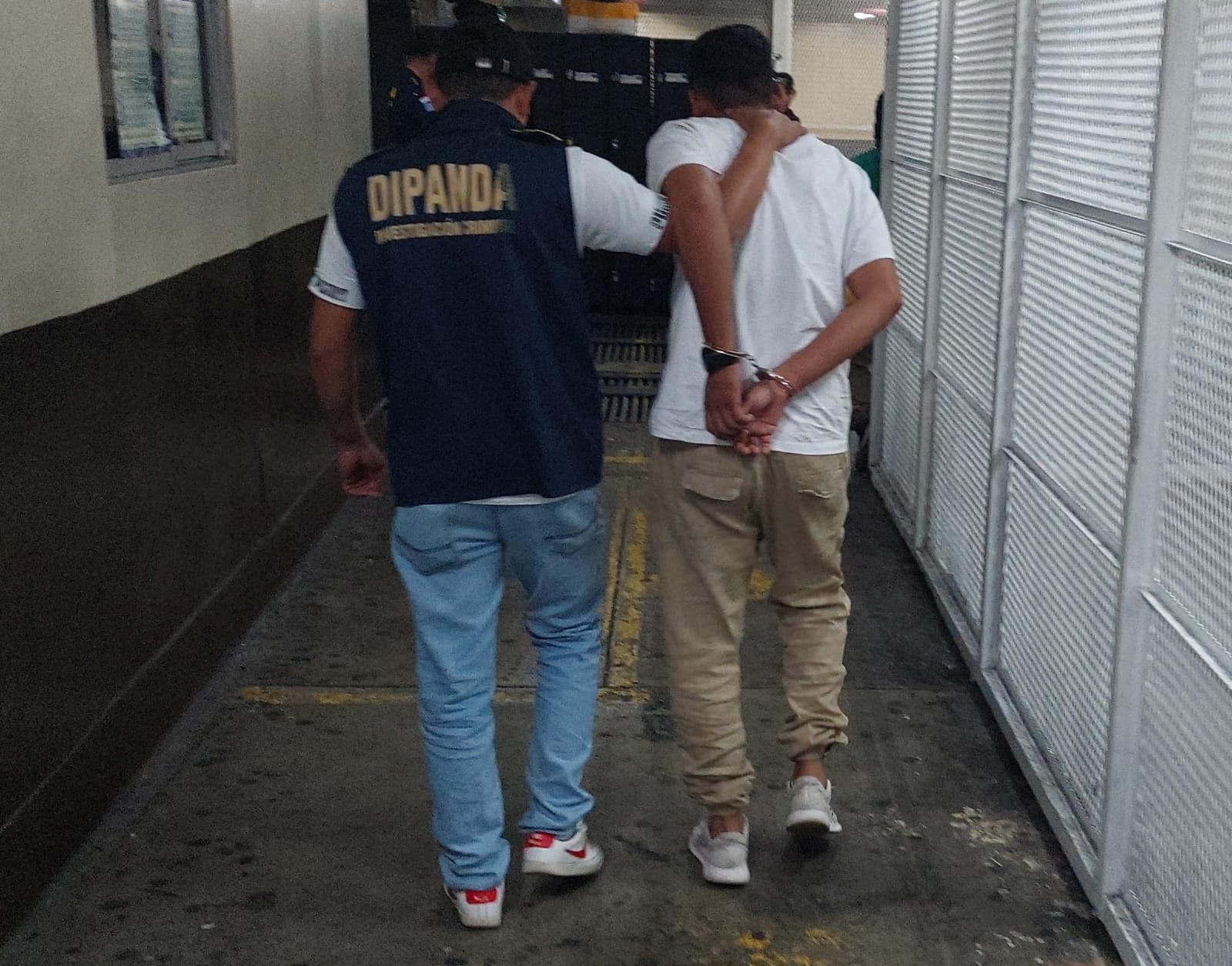
Guatemala’s National Civil Police (PNC) arrested a suspected extortionist in the act during an operation carried out in the department of Quiché, authorities reported.
According to the police report, the arrest took place in Zone 1 of Santa Cruz del Quiché after officers responded to a citizen complaint. Agents from Precinct 71 identified the suspect as Encarnación “N”, 41, who was serving as a guard in the Guatemalan Penitentiary System.
The suspect was caught while attempting to collect a package simulating an extortion payment totaling 25,000 quetzales. Police intervened at the precise moment the money was being handed over, allowing authorities to document the crime in flagrante delicto.
Following the operation, the detainee was placed at the disposal of the competent courts to face criminal proceedings.
The PNC emphasized that such operations aim to dismantle criminal structures involved in extortion, regardless of whether those implicated are linked to state institutions, and urged the public to continue reporting these crimes through confidential channels.
Central America
Honduras swears in conservative president Asfura after disputed election

Conservative politician Nasry Asfura assumed the presidency of Honduras on Tuesday with an agenda closely aligned with the United States, a shift that could strain the country’s relationship with China as he seeks to confront the economic and security challenges facing the poorest and most violent nation in Central America.
Asfura’s rise to power, backed by U.S. President Donald Trump, marks the end of four years of left-wing rule and secures Trump another regional ally amid the advance of conservative governments in Chile, Bolivia, Peru, and Argentina.
The 67-year-old former mayor and construction businessman was sworn in during an austere ceremony at the National Congress, following a tightly contested election marred by opposition allegations of fraud and Trump’s threat to cut U.S. aid if his preferred candidate did not prevail.
Grateful for Washington’s support, Asfura—who is of Palestinian descent—traveled to the United States to meet with Secretary of State Marco Rubio, before visiting Israeli Prime Minister Benjamin Netanyahu.
“We need to strengthen relations with our most important trading partner,” Asfura said after being declared the winner of the November 30 election by a narrow margin, following a tense vote count that lasted just over three weeks.
Central America
Bukele leads public trust rankings as UCA survey highlights gains in security
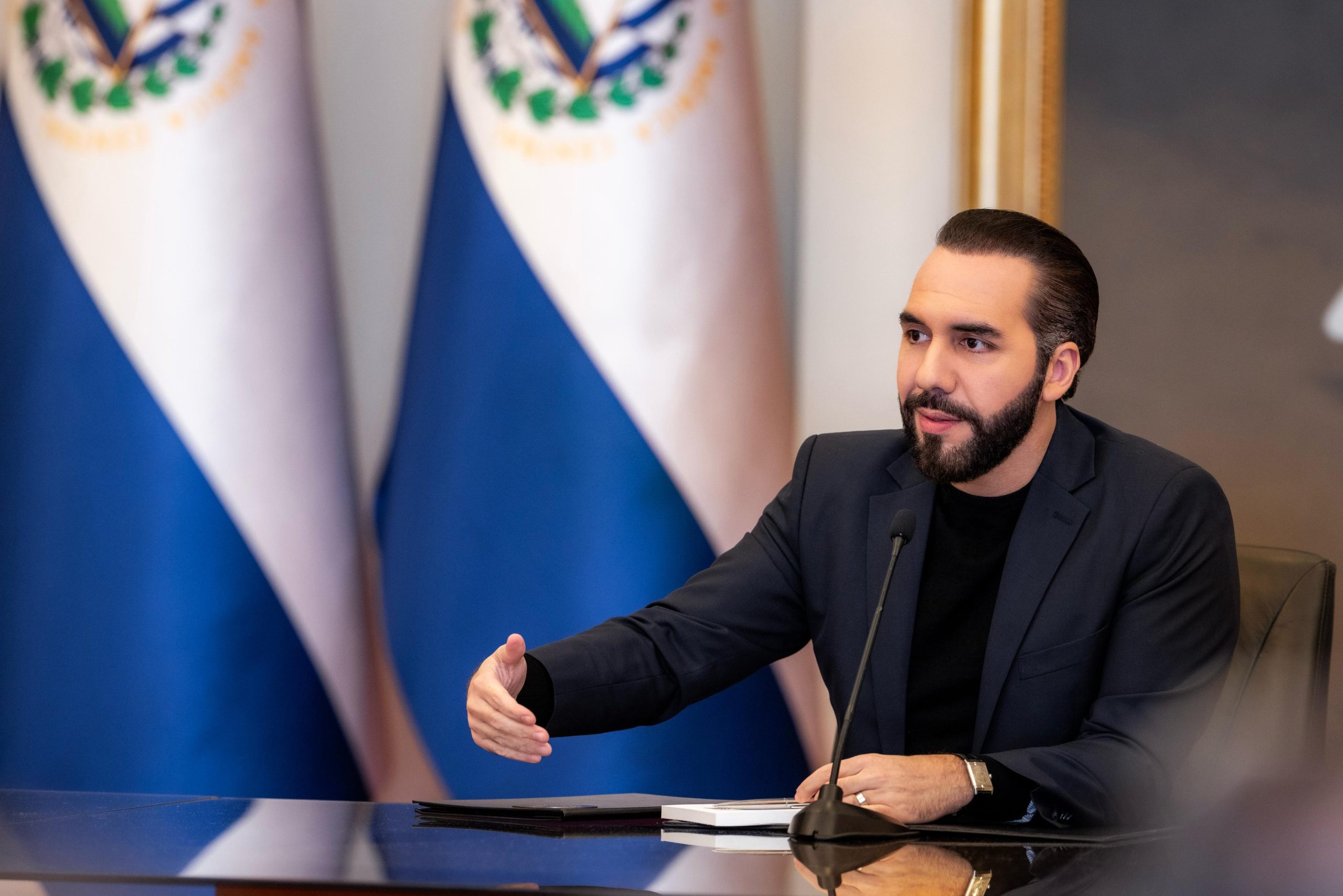
Results from the UCA Survey, conducted by the José Simeón Cañas Central American University (UCA), were presented on Tuesday, offering an assessment of the performance of the Government of El Salvador during 2025 and measuring public perception on key issues such as security and the economy.
According to the survey, President Nayib Bukele received an average score of 8.39 for his performance in 2025. In the category measuring levels of trust in national institutions and social actors, Bukele led the ranking with 77% public confidence, surpassing the Central Government (69.6%), the Armed Forces (69.1%), the National Civil Police (PNC), and the Catholic Church (58.4%), among others.
The survey also highlights an upward trend in the president’s evaluation. While Bukele scored 8.15 for his performance in 2024, the most recent assessment of his sixth year in office showed an increase to 8.39.
Meanwhile, the Government of El Salvador as a whole was rated 8.33 for its performance during 2025.
Respondents identified public security as the area showing the greatest progress in the country, with 62.7% recognizing improvements in this sector, according to the UCA survey released on Tuesday.
-

 Central America4 days ago
Central America4 days agoGuatemala’s president rules out negotiations with inmates after prison riots
-

 Central America1 day ago
Central America1 day agoGuatemala seizes over a ton of cocaine hidden in flour at Pacific port
-

 International3 days ago
International3 days agoTrump-Era Defense Plan Prioritizes Border Security and Scales Back Global Commitments
-

 Internacionales4 days ago
Internacionales4 days agoMajor winter storm threatens “catastrophic” ice and snow across much of the U.S.
-

 International3 days ago
International3 days agoBogotá and Quito Seek Dialogue After Tariffs and Power Cut Escalate Tensions
-

 International4 days ago
International4 days agoGuatemala considers sending high-risk gang members to military prisons
-

 International2 days ago
International2 days agoDelcy Rodríguez seeks political agreements after Maduro’s ouster
-

 International1 day ago
International1 day agoHistoric snowstorm paralyzes Toronto after 60 centimeters of snow
-

 International1 day ago
International1 day agoSpain’s irregular migrant population rises to 840,000, study finds
-

 International2 days ago
International2 days agoFederal immigration agents kill man in Minneapolis, sparking protests and outrage
-

 International4 days ago
International4 days agoRights group says over 5,000 killed in Iran protests, mostly civilians
-

 International1 day ago
International1 day agoRights group says nearly 6,000 killed in Iran protest crackdown
-

 Central America3 hours ago
Central America3 hours agoGuatemala Police Arrest Prison Guard Caught in the Act of Extortion
-

 International1 day ago
International1 day agoVenezuela frees at least 80 political prisoners, NGO says
-

 International1 day ago
International1 day agoEU launches new probe into X over AI-generated fake nude images
-

 International4 hours ago
International4 hours agoDoomsday clock moves to 85 seconds before midnight amid rising global risks
-

 Sin categoría3 hours ago
Sin categoría3 hours agoEight Killed in Series of Armed Attacks in Ecuador’s Manabí Province
-

 Central America4 hours ago
Central America4 hours agoBukele leads public trust rankings as UCA survey highlights gains in security
-

 Central America4 hours ago
Central America4 hours agoHonduras swears in conservative president Asfura after disputed election
-

 International3 hours ago
International3 hours agoSpain approves plan to regularize up to 500,000 migrants in Historic Shift
-

 International3 hours ago
International3 hours agoWinter Storm Fern Leaves 30 Dead and Over One Million Without Power Across the U.S.
-

 Sin categoría3 hours ago
Sin categoría3 hours agoEl Salvador Launches Fourth Year of Ocean Mission to Protect Marine Ecosystems
-

 International1 day ago
International1 day agoSevere winter storm grips U.S., leaves multiple dead as extreme cold persists
-

 International1 day ago
International1 day agoFrance debates ban on social media for children under 15



















































































